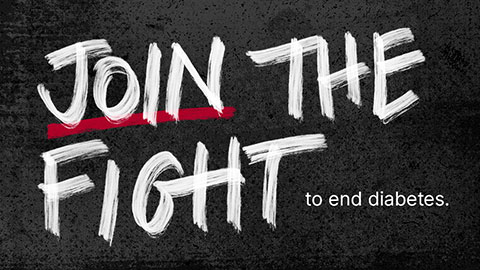Sharing My Story: Our First Month as Parents of a Type 1 Diabetic

Kylie’s son, Rowen, lives with type 1 diabetes—but Kylie refuses to let the fear hold their family back.
I’m the parent of a type 1 diabetic. It’s probably something you never wondered about before—I know I had never thought about it. One day your 14-month-old baby is healthy and happy, the next they are vomiting, weak, unable to move and being rushed to the ER. It’s a terrifying time to a be a parent. In the PICU we were scared and overwhelmed. Hundreds of questions and thoughts raced through our minds. Is my child going to survive? Type 1 diabetes? You can’t be serious?But no one in my family is type 1! I don’t know if I can do this. I have to poke my child several times a day to check his blood sugar and give him insulin now?
Coming home from the hospital, it was like having a newborn. Except my new job is a full-time pancreas for my child, and let me tell you, it is a very labor-intensive one. Until we got Rowen’s CGM (continuous glucose monitor), our schedule was as follows per our endocrinologist:
- Breakfast: Check blood sugar
- 30 minutes after breakfast: Give insulin based on amount of carbs eaten (do not exceed 30 minutes; if he’s not done, unfortunately he is now)
- Two hours after breakfast: Check blood sugar (if high, give water; if low, treat accordingly and re-check in 10-15 minute.)
- Lunch: Check blood sugar
- 30 minutes after lunch: Give insulin based on amount of carbs eaten (do not exceed 30 minutes; if he’s not done, unfortunately he is now)
- Two hours after lunch: Check blood sugar
- Dinner: Check blood sugar
- 30 minutes after lunch: Give insulin based on amount of carbs eaten (do not exceed 30 minutes; if he’s not done, unfortunately he is now)
- Two hours after dinner: Check blood sugar
- Before bed: Check blood sugar
- 2:00 am: Check blood sugar (this one is very important since some diabetics go low around this time)
It’s extremely overwhelming to overhaul the life you once knew. Going to the grocery store takes twice as long because you have to read the amount of carbs and sugar in everything you are going to give your child. Going out for a meal, you either have to bring your own food for him, go to a chain that has nutrition facts or utilize my favorite diabetic term, SWAG (scientific wild a** guess). Everything in your pantry and fridge has a number. You keep tons of candy and frosting on hand. Your child becomes more emotional when he has high blood sugar, low blood sugar, and drops or rises quickly. How active your child is affects his blood sugar--adrenaline sometimes will make your blood sugar go up, then drop. Taking a warm bath or shower lowers his blood sugar. When Rowen is very angry, he has elevated blood sugar. When he sleeps, is he breathing? When his blood sugar is low, is he going to have a seizure?
Diabetes. Affects. Everything. Not just the individual with diabetes. The whole family dynamic changes. It’s expensive. It’s taxing on the emotions of the caretakers. Diseases can make or break parents. Fortunately it hasn’t broken us, as stressful as it can be.
When you get the confirmation of type 1 diabetes, you have to swallow every emotion you have, put it in the back of your mind and become strong. You want to be a role model for your child. You want to show them that this disease will not define them and hold them back. Instead of worrying about how you’re going to do this, you dive right in and say, “I can do it, I was meant to do this.”
People tell you “I don’t know how you do it, I could never!” When it’s your child, you don’t think. You just do. More than anything, you wish to take their place. You begin to carry the weight of this heavy disease. You no longer sleep because you’re always worried about their blood sugar levels. You check your phone every five minutes to see what his updated blood sugar number is. Five minutes can be the difference between regular blood sugar or the need to treat a dangerously low blood sugar. You cry in the shower because that is the only place you allow yourself to break for just a moment.
Eventually you stop crying (as much), you get a grasp on it and continue life as usual.
It’s hard to be a parent to type 1 diabetic because your life revolves around numbers, insulin and your child’s feelings. If you know anyone who has a child who is type 1 or is type 1 themselves, reach out every now and then. You don’t need to understand what they are going through--just be around for them. It’s a very isolating disease. We go through a lot and it’s not an easy job with terrible pay.
But the reward is seeing your child thrive, and it is so worth it.








